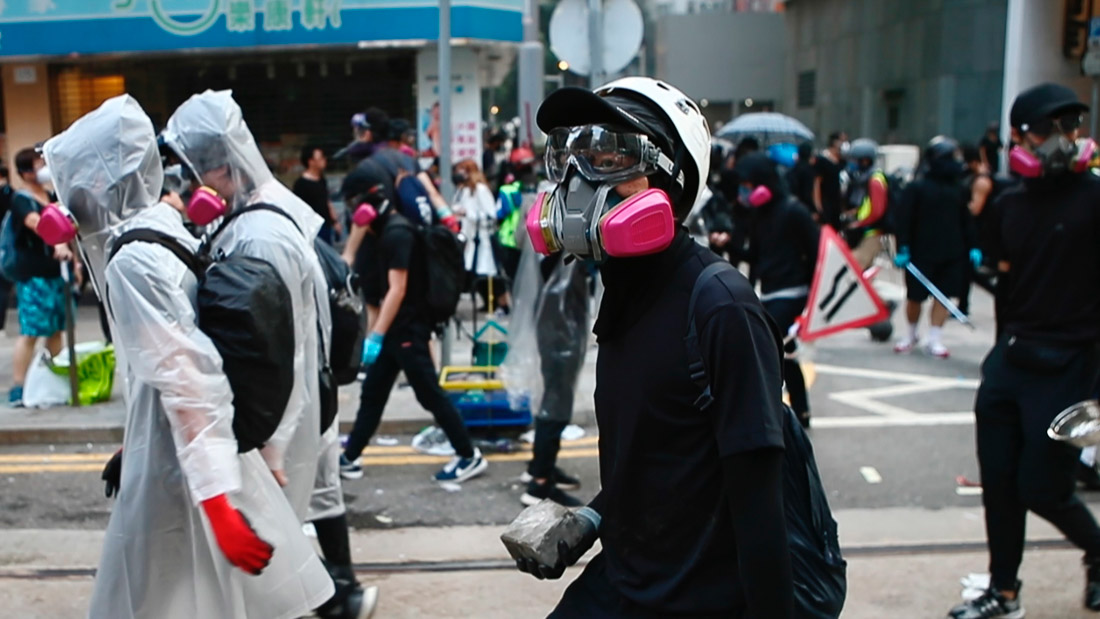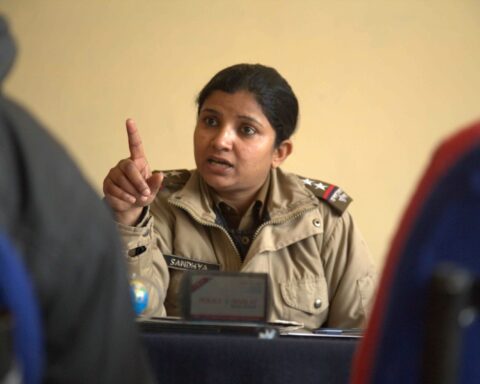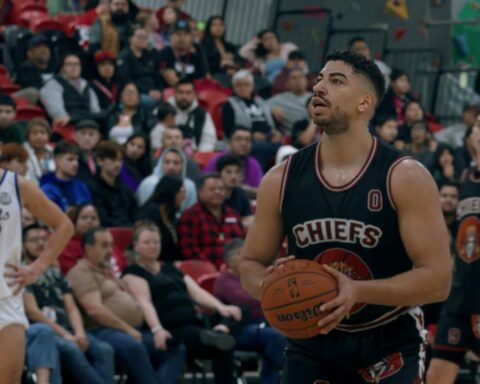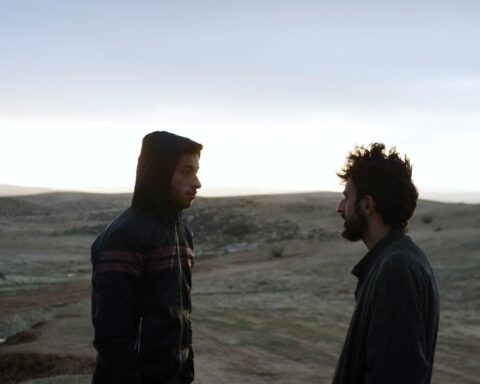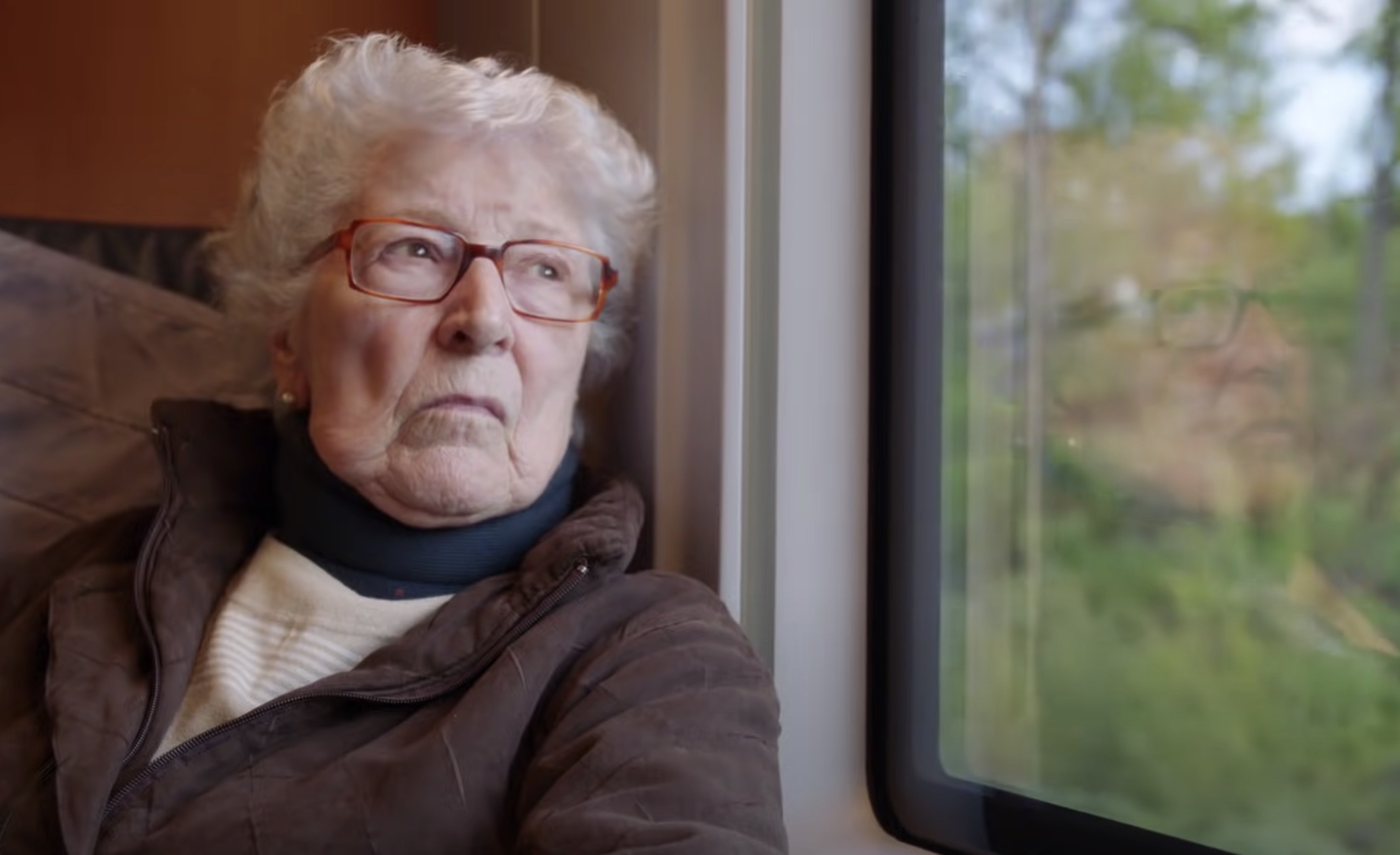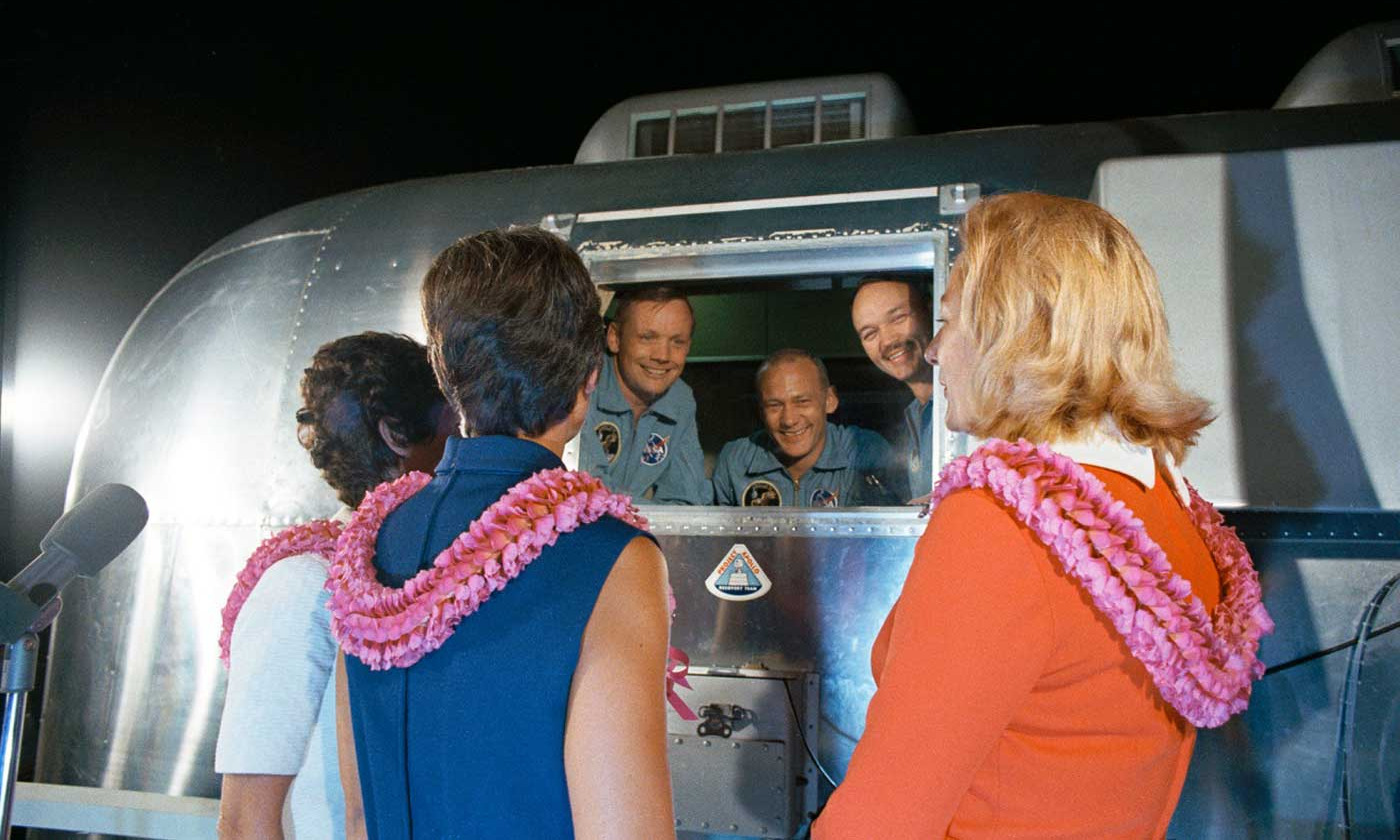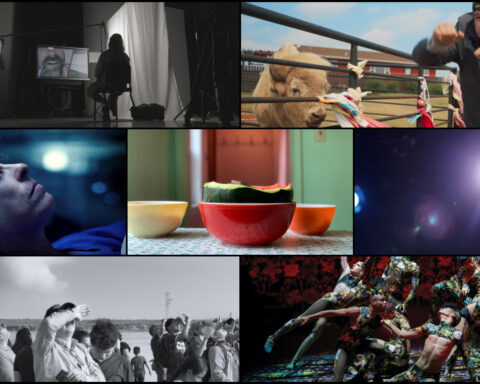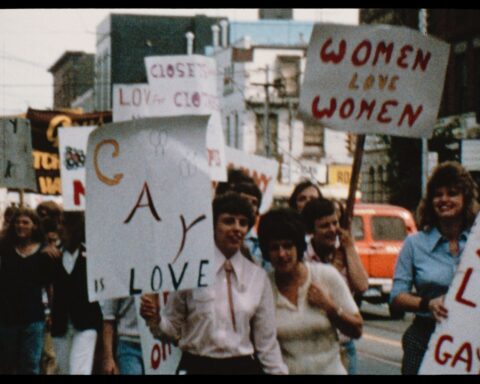Here are four more shorts on the Oscar shortlist for Best Documentary Short Subject – with links to watch all four!
Other docs on the shortlist include Abortion Helpline, this Is Lisa, Colette, Hunger Ward, Hysterical Girl, and What Would Sophia Loren Do?.
A Love Song for Latasha
(USA, 19 min.)
Dir. Sophia Nahli Allison
A Love Song for Latasha is just that – a beautiful, affectionate ode to a young Black girl who deserves to be remembered in the words of the people who loved her. The doc introduces Latasha Harlins not by the tragedy by which she came to be known, but by recreating a telling anecdote from a friend that reveals her empathetic core. The film sees childhood friends and family share memory after memory of Harlins, recreated by actors who often move in unexpected ways. Allison pictures a vivid and experimental recounting of a childhood in South Central Los Angeles in the ‘90s.
A lovingly told, multifaceted impression of Harlins is fully constructed before the details of her 1991 death play out. The screen goes black and animated images take shape as the horrific details unfold, which are illustrated sparingly. The film takes care not to be explicit in its depiction of Harlins’ death, which was at the hands of a convenience store owner over a bottle of orange juice. Happening less than two weeks after the beating of Rodney King, Harlins’ death was one of the events that precipitated the LA riots.
As her childhood best friend recounts the horror of seeing the video of her playmate being shot repeat during the day’s newscast, the screen remains black with small white swirls of white that convey her pain. The doc is careful to omit the violent video, instead creating an abstract portrait of Harlins’ ambitious and kind spirit. Harlins hauntingly said to a friend that she never wanted to become a statistic, and A Love Song for Latasha honours that wish by reminding audiences of her name. – Madeline Lines
A Love Song for Latasha is streaming on Netflix.
The Speed Cubers
(USA, 40 min.)
Dir. Sue Kim
Now here’s an unlikely sports movie! The Speed Cubers introduces audiences to the quick, thrilling, and unexpectedly intense world of “speed cubing.” The sport is one of intellect and agility as young minds master Rubik’s Cubes. The film focuses on two of the world’s master speed cubers, 17-year-old Max Park and 23-year-old Feliks Zemdegs, as they ready for the world championship.
The Speed Cubers follows conventional sports doc fashion, but its subject matter gives it a novel twist. As director Sue Kim builds towards the tense finale, she observes Max and Feliks as they obsessively practice their cubing. The key to speed cubing is mastering the algorithms that guide the colour-coded twists and turns of the cube, and creating physical recall with one’s hands to ensure fingers are adroitly nimble and dexterous whilst handling the cube. The competitors can master a cube in under seven seconds—even with one hand!—while they upgrade the challenge further by tackling 4×4 and 6×6 cubes after nailing the 3×3. The latter is to speed cubing what the 100m sprint is to the Olympics.
By focusing on two students who are both friends and rivals, Kim’s doc brings audiences into the headspace of both competitors. Feliks, who has held the 3×3 world championship for eight consecutive years, delights in a challenge that rewards brains over brawns. For Max, a major threat in any category with his eyes on his friend’s title, the competition is a unique arena to develop social skills. Max’s parents explain that he has autism, and reveal how the concentration and focus of cubing provides him an outlet. As the finals approach, they wonder how Max would react to a loss. The stakes are high for these young minds and The Speed Cubers culminates in an intense showdown. This crowd-pleasing doc triumphantly finds great action in the power of the mind. – Pat Mullen
The Speed Cubers is available on Netflix.
Call Center Blues
(USA, 24 min.)
Dir. Geeta Gandbhir
A complicated and heartbreaking diaspora is at play in Call Center Blues. The short doc follows a number of call centre employees in Tijuana, Mexico who grew up and lived most of their lives in the USA, only to be deported for minor offenses. They’re sent back to a native country they don’t recognize, often because most were only newborns when they arrived in the United States. The film does well to capture the pain of being caught in limbo between two countries that are home in different ways.
The deportees’ unique circumstances make them ideally suited to be call center workers in Tijuana. They speak without accents and know how to ease the Americans on the other side of the phone into conversations. While the money is good compared to other jobs in the area, the doc captures the aching understanding that America is their true home.
The verité style doc is a raw meditation on the concept of borders and the people that it slices in two. The topic of Donald Trump is unavoidable when talking about America’s borders, but the film doesn’t dwell on it. The only mention is when a young man says in Spanish, “All I can say is God bless him, and maybe someday he’ll regret everything he’s done.” Let’s hope. – ML
Call Center Blues is currently streaming on Vimeo via Topic.
Do Not Split
(Norway/USA, 34 min.)
Dir. Anders Hammer
It’s hard to fault the doc branch for any of its selection in this year’s short shortlist and it’s even more difficult to choose a winner in the field. However, if this critic had a ballot in the shorts race, Do Not Split would be at the top.
This on-the-ground and in-the-moment doc from Field of Vision and director Anders Hammer is bravura filmmaking. Do Not Split chronicles the efforts of activists in Hong Kong, many of whom are students, protesting the increasingly authoritarian reach of mainland China. Hammer, who also shot the film and co-edited with Mark Lukenbill and Bill Ross IV, brings the camera into the thick of the protests that erupted in 2019. The film witnesses the umbrella-bearing, mask-wearing demonstrators standing their ground against escalating police violence. Rubber bullets fly and smoke cans whiz through the air, and the doc captures the intensity of being on the streets amid the action to fight an oppressive force.
The confrontations intensify as the timeline approaches 2020. When COVID hits, the protests shut down and the activists see China wield its power anew. Yet by tackling this story in such close proximity to the activists on the frontlines, Do Not Split captures the stakes from personal vantage points. For Joey, who becomes the chief eyes through which the doc sees the events, the protests are a fight for her future as she worries about the right to free speech as well as her career prospects, which could turn on a dime depending on whom the government influences. The doc is an eye-opening and engrossing portrait of democracy in action that captures extremely compelling images of the makings of a police state. Fuelled by a pulse-pounding (but unobtrusive) score and a camera that is as unwavering as the film’s subjects are in their commitment to speak the truth, Do Not Split is an extraordinary work of both journalism and filmmaking. – Pat Mullen
Do Not Split is available to stream via Field of Vision.




